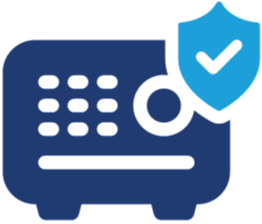Ironically, technology is so fundamental to ERP systems that, like the air we breathe, it can be taken for granted. Don’t. Implementing an ERP system involves several important technological considerations to ensure a successful deployment. Here are key technology considerations to keep in mind during the implementation:

Infrastructure
Assess your organization’s existing infrastructure and determine if it can support the ERP system requirements. Consider hardware, servers, storage, networking, and security factors. Ensure that your infrastructure is scalable, reliable, and meets the performance requirements of the ERP system.

Software Compatibility
Evaluate the compatibility of the ERP system with your existing software applications, databases, and operating systems. Ensure the ERP system integrates seamlessly with your current technology landscape to facilitate data exchange, workflows, and system interoperability.

Integration Capability
Consider the integration capabilities of the ERP system. Assess whether it supports standard integration methods, APIs, or pre-built connectors to connect with other systems and applications within your organization’s ecosystem. Integration with CRM, e-commerce platforms, or business intelligence tools is often crucial for a comprehensive solution.

Cusomization and Configuration
Determine the customization and configuration required for the ERP system. Evaluate the system’s flexibility and ability to adapt to your business processes and requirements. Strike a balance between leveraging standard features and the need for customization to minimize complexity and ensure future system upgradability.

Mobile and Remote Access
Determine whether the ERP system supports mobile access and remote connectivity. In today’s digital landscape, mobile compatibility and remote accessibility are increasingly important for users accessing the system on the go or from remote locations. Ensure the ERP system provides secure and reliable mobile and remote access options.

Scalability and Performance
Evaluate the scalability and performance capabilities of the ERP system. Consider system response time, concurrent user capacity, and data volume handling. Ensure the system can accommodate future growth and increased demands without compromising performance.

Security and Data Privacy
Prioritize the security and data privacy features of the ERP system. Assess the system’s authentication mechanisms, role-based access controls, data encryption, audit trails, and compliance with data protection regulations. Protecting sensitive and confidential data should be a top priority during ERP system implementation.

Vendor Support and Expertise
Consider the track record and reputation of the ERP system vendor. Evaluate the vendor’s support services, availability, and responsiveness to address technical issues, bug fixes, and system upgrades. Assess the vendor’s expertise in implementing and supporting ERP systems in your industry or business domain.
It is essential to involve IT professionals, consultants, and stakeholders with technology and ERP systems expertise during the implementation planning to ensure a successful deployment. Regularly review and update your technology considerations to address emerging needs and technological advancements as the project progresses.









